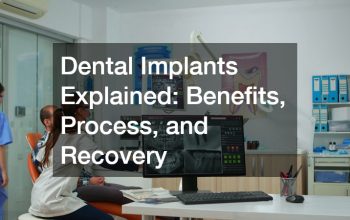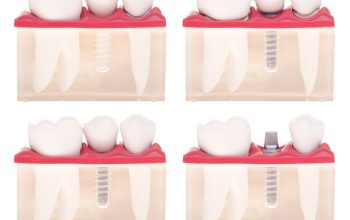


The healthcare industry is enormous, with new fields and specializations every day. A career in the dental field is very lucrative as many domains one can fit. However, not many countries and hospitals will require all the dental specializations. Some will only need a general dentist and their assistant to carry out any oral issues affecting patients. Additionally, insurance companies remodel health insurance plans to include dental and reproductive health. The growth in this field has seen the rise of different careers such as dental hygienists, orthodontists, endodontists, periodontists, and dental laboratory technicians.
If you must have an implant, and your insurance doesn’t cover it, you should question yourself: is a tooth implant necessary. Other questions you should linger on are; what are dental implant shifting and all on 4 dental implant. Some of the websites to get answers from include dental implant centers of America. Also, a dental surgery tooth replacement may be more affordable than an implant. It is vital to weigh the options.
The entry requirements may differ across different institutions, but the admission requirements are not strict. One advantage of a career in this field is that one spends less time in school. Also, one can start earning after studies to help in repaying the school loans while advancing to the next level.

It can be nerve-wracking waiting for cosmetic dental surgery, especially if you don’t know what you’re getting into. Even though dental implants have a 98% success rate, it can help your health and peace of mind to know what will happen beforehand.
The time it will take for your dental implant surgery is determined by several factors, including your dental health, which and how many teeth are being replaced, and how many teeth were extracted before the surgery. A single implant may only take 1-2 hours from anesthesia to walking out the doors.

Usually IV sedation or local anesthesia is used to prevent pain during the procedure, but
there’s usually some pain after it wears off. However your dentist can prescribe medication to deal with it and it’s usually much less severe than people expect. Most people have small bruises or slight swelling, but not enough to prevent you from working the next day.
Your dentist may ask you to prepare for the surgery by using an anti-bacterial mouthwash, taking antibiotics and altering your eating habits: If you opted for IV sedation, you can’t eat after midnight the night before surgery, and if you’re using a local sedative, you should eat a good breakfast. You also might be asked to have someone come with you for transportation if you use any kind of sedative.

Dental implants usually are a two-phase process that can take 6-9 months. The surgical phase can be performed by either a dentist or an oral surgeon. The first phase involves drilling a small hole and screwing the implant into place, allowing it to integrate with the bone overtime. In the second phase, a new crown is created and placed on the titanium base.
Your dental implant will require care, and it should be brushed and flossed as your dentist recommends. Dental visits should be made about every six months after major cosmetic dental work to prevent complications like bone loss around the implant, infection, or rejection of the implant. More on this.



